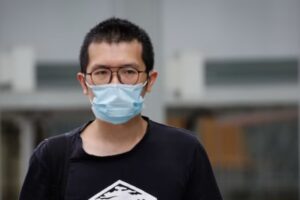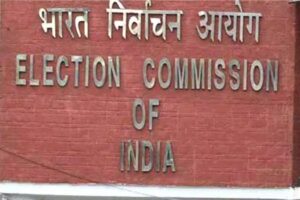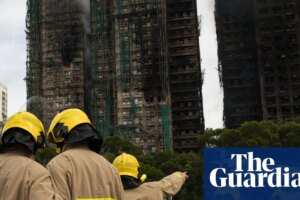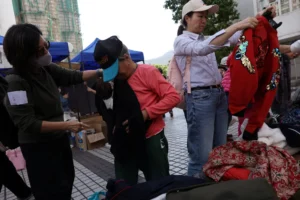
In the wake of early August’s spontaneous mass protests in the city of Jiangyou, Sichuan province over official inaction in a severe bullying case, there has been unusually stringent online censorship of videos, photos, hashtags, articles, comments, and other content related to the case, the protests, and the heavy-handed police response to the protesters.
A previous CDT post links to videos of the protests, and lists many of the hashtags that were censored on Weibo, including those that were scrubbed from the trending topics list, banned outright, or muted by being search- or comment-blocked. CDT Chinese editors have also archived many articles and essays on the topic, including two censored WeChat articles and a Zhihu question that received an outpouring of responses before it was eventually deleted.
Among the archived content is an excellent long-form article from the “Aquarius Eras” Substack featuring interviews with local residents explaining why they felt so compelled to join the protests in support of Lin Yu, the girl who was bullied, and her family. (All of the residents are referred to by pseudonyms.) A short portion of the article is translated below:
Zhou Cheng realized he knew Lin Yu, the thin young girl who appeared in the [WeChat] video, her head bowed as she was beaten and humiliated by three of her classmates. She lived in the same village as him; they may have exchanged greetings as they passed each other in the hills. Zhou, a middle-aged man in his forties with a school-age daughter, felt furious, as if the slaps Lin suffered in the video were slaps to his own face. The following day, when Zhou Cheng read that the local police had also failed to provide justice for Lin Yu and her family, he decided to join the protest in support of Lin’s deaf mother and migrant-worker father.
[…] Zhou Cheng knew Lin Yu’s parents. He recalled that her father was away from the village all year round working odd jobs, and that her mother was deaf and unable to speak, making communication difficult.
[…] Another widely circulated video, from August 4th, shows Lin Yu’s parents kneeling, nearly prostrate on the floor of the city hall lobby. The couple are still fairly young, and the mother—thin and petite, wearing a black sleeveless top—appears distressed. She opens her mouth wide but no sound emerges. In that lobby, the two parents kowtow repeatedly, prostrating themselves and raising their hands in supplication. Crawling a few steps forward, they kneel at the feet of a man who appears to be a government official, clutching at his ankles and appealing for justice [for their daughter].
[…] Zhou Cheng, who witnessed the couple’s appeal and later watched video footage from the scene, experienced the same sense of revulsion he had when he saw the bullying video. He was also deeply puzzled by the official’s behavior toward the couple during their mediation meeting. Regardless of who will eventually be held responsible or what the merits of their appeal, Zhou believes that in such a situation, the least the cadre could have done was to help the couple up from the ground. “Two ordinary citizens are kneeling on the ground, arms wrapped around your legs, begging you to ‘have mercy on us,’ and yet he just stood there. The moment they knelt before him, he ought to have helped them up,” said Zhou Cheng, frowning. “That’s the most basic thing. Regardless of rank or status, everyone is equal.”
[…] Liu Fang [a rural resident who traveled to the city to take part in the protests] said that she saw so many blue-uniformed police officers at the entrance to city hall that day that she didn’t dare record any videos or discuss the incident with anyone around her. Afterward, she was so spooked that even when she was back home, she would subconsciously lower her voice whenever she talked about the incident. But Liu remains steadfast that protesting was an imperative, and she felt she had no other recourse but to take to the streets to demand justice from the government.
Recalling the massive crowds that had gathered outside city hall, Liu Fang seemed to regain her courage. As she spoke to us, her cadence quickened and her voice grew louder. “People from the countryside might not have education or connections,” she said, “but no matter how powerful those officials are, we ordinary folks outnumber them. It’s not like they can wipe out tens of thousands of us in one fell swoop.”
[…] Lu Qiang [a 24-year-old man who attended the initial protest] had left city hall before evening fell. Later that night, he watched videos of the escalating confrontations between police and civilians, and of the violent clearing of the scene by police. Although he had previously been sympathetic to the local government’s efforts to maintain order and keep the details of the case secret, he now feels it was unfair for the police to treat Jiangyou citizens so violently. “They called it a riot, but those protesters weren’t holding anything, they weren’t threatening the safety of the police. The government response was over the top,” he said glumly. “It’s so unfair to us ordinary people. It’s just pitiful.” [Chinese]





